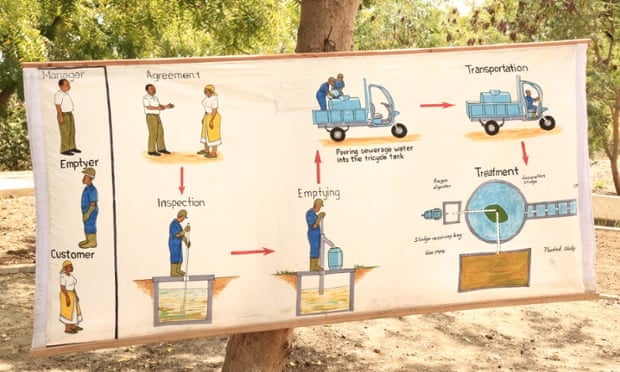Everyone on the planet deserves access to effective sanitation. James
Jackson, corporate partnerships manager at WaterAid, talks about World
Toilet Day and the important role corporate partnerships can play

Some 2.5 billion people do not have access to a toilet. And this has a profound impact on a country’s national health, children’s education, women’s safety, and productivity. In fact, the World Health Organization has estimated that poor water and sanitation costs developing countries $260bn (£166bn), or 1.5% of their GDP (PDF), each year.
Yet, for every $1 (63p) invested in water and sanitation, an average of at least $4 (£2.55) is returned in increased productivity. So it is surprising that, despite this evidence, sanitation is a challenge the world has yet to overcome.
Nevertheless, here at WaterAid, we believe that everyone, everywhere can gain access to water and sanitation by 2030. And corporate partnerships play a critical role in figuring out how to achieve that.
For instance, the Anglo American Group Foundation supports WaterAid’s equity and inclusion research in southern Africa, which focuses on the relationship between sanitation and HIV. It’s a key issue as people living with the virus can require as much as 100 litres of clean water per day to stay clean and healthy.
Projects and partnerships
The CEO Water Mandate (PDF) recently advanced the business case for corporate action on sanitation, recognising that good sanitation:- improves productivity at work,
- increases effective talent recruitment,
- increases consumer purchasing power,
- reduces water treatment costs and
- leads to a robust business climate.
Companies can support the World Business Council for Sustainable Development pledge and ensure their employees have access to safe water, sanitation and hygiene at work. They can extend these expectations to their supply chains, and partner with governments and non-governmental organisations to advance sanitation in nearby communities.
WaterAid works with different companies to address water, sanitation and hygiene challenges. As well as the Anglo-American Group Foundation, we work in partnership on corporate social responsibility programmes such as the H&M Conscious Foundation, and the HSBC Water Programme.
In our programmes across Africa and Asia, we develop entrepreneurial approaches to delivering sanitation services. Unlikely as it may sound, human excreta can be looked at as an opportunity to create services for its collection, treatment or disposal, and as a product for biofuel or fertiliser.
Take WaterAid’s work in the Kigamboni area of Dar es Salaam, Tanzania. The small enterprise UMAWA used start-up capital from WaterAid, provided in part through the UK Department for International Development and The Stone Family Foundation, and worked with local authorities and micro-finance institutions to develop a business model to empty latrine pits at a profit. This provides a much-needed service in this under-served area as well as income for the founder and his employees.
At WaterAid, we are certain that solving the sanitation crisis within a generation will require action from the business community. We need to grow our existing partnerships and create new ones. No business can thrive where a society is suffering from ill health.
On this World Toilet Day, we urge the business community to do more to help under-served communities without access to toilets.
James Jackson is corporate partnerships manager at WaterAid
WaterAid is an Anglo American Group Foundation partner, supporting WaterAid’s work in equity and inclusion. The Foundation currently funds research in southern Africa, examining the relationship between access to water, sanitation and hygiene and HIV/AIDS.
No comments:
Post a Comment